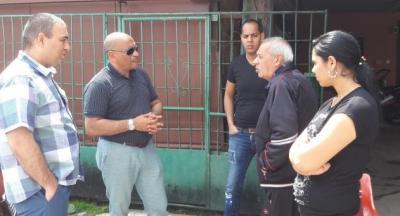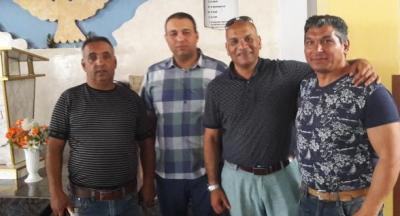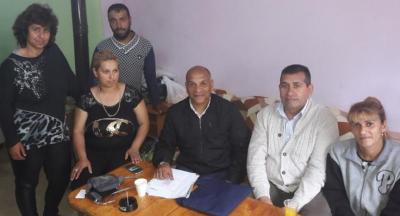Samokov
*Disclaimer: The information and views set out in this page do not necessarily reflect the official opinion of the Council of Europe and/or the European Commission. Neither the Council of Europe, the European Commission nor any person acting on their behalf may be held responsible for the use which may be made of the information contained therein.
Samokov municipality is located in South-West Bulgaria and is part of Sofia administrative district. Samokov municipality includes 28 settlements – Samokov, Alino, Belchin, Belchinski bani, Beli Iskar, Dolni Okol, Dospey, Dragushinovo, Gorni Okol, Govedartsi, Gutsal, Klisura, Kovachevtsi, Lisets, Madjare, Mala tsarkva, Maritsa, Novo selo, Popovyane, Prodanovtsi, Raduil, Rayovo, Relyovo, Shipochane, Shiroki dol, Yarebkovitsa, Yarlovo, Zlokuchene. The town of Samokov is the administrative center of the municipality.
The Roma population numbers 14% of the entire population, according to the official data. They live in separate neighborhoods and they are concentrated in 4 settlements: Samokov, Kovachevtsi, Maritsa and Popovyane. Tree of the municipal councilors out of totally 29 people are Roma.
Some of the main issues they face are related to poor housing conditions/ illegal built homes, lack of health insurances, segregated schools, large number of drug addicts.
The ROMACT Process
Samokov municipality joined the ROMACT program in February 2017 with the signature of the letter of agreement.
The problems identified by the Community Action Group, created in June 2017, are:
| Identified problems |
|---|
| Lack of financial resources to pay the kindergarten taxes |
| High level of illiteracy among the adults |
| Segregation in kindergartens and schools |
| Lack of teachers qualified to work in multicultural environment |
| Big number of Roma with no health insurance |
| High level of chronic diseases |
| Poor Infrastructure – street light, asphalt etc. |
| Lack of security/ job opportunities |
| Lack of resources for securing necessary school supplies |
The Taskforce for Roma Inclusion was created in November 2017.
The Municipal Action Plan for Roma Inclusion was adopted in September 2018.
The Municipality benefited of ROMACT expertise for the following projects :
* Balancing between care work and life- OPHRD Transnational cooperation
Status : rejected
* Parents club to learn and to create together that's wonderful - Ministry of education - COIDUEM.
Status : rejected
* Mosaic of friendship- implementing alternative forms of education and training for children from different backgrounds - Funded by the Ministry of education and COIDUEM.
Budget : 10 000 euros
Status : approved
* Out of the box - Funded by ERASMUS+
Budget : 21 666 euros
Status : approved
* Intercultural mediation and social inclusion of youths from vulnerable minority groups- Funded by ERASMUS+.
Status : rejected
* STEM center in Hristo Maximov School, Samokov- Funded by the Ministry of Education.
Status : rejected
Trainings provided by ROMACT experts :
Local Authorities (LA):
* Planning where to intervene;
* Drafting project idea and establishing partnership under transnational cooperation;
* How to apply for funding to open calls for proposals to fund activities/priorities in Municipal Action Plan for Roma Inclusion (MAPRI);
* Monitoring of the (MAPRI).
Community Action Groups (CAG):
* Preparing needs assessment, setting up priority list and planning;
* Participation in the process of municipal budget planning.
Taskforce :
* Interdisciplinary and integrated approaches for tackling social exclusion;
* Monitoring the Municipal Action Plan for Roma Inclusion.



